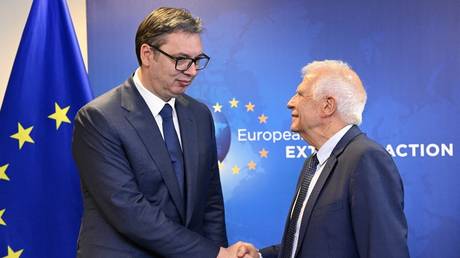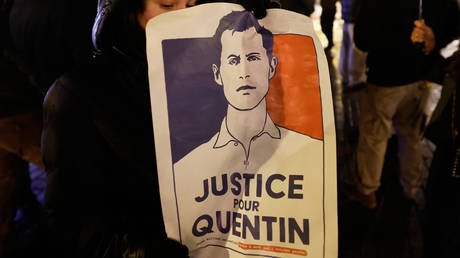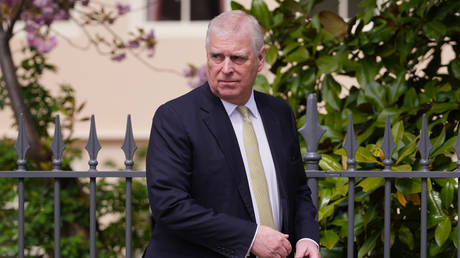
Serbia sees a lack of support from Brussels for its membership, President Aleksandar Vucic said
Serbian President Aleksandar Vucic has said that the accelerated path to EU membership offered to Ukraine demonstrates that political support for Serbia’s own membership bid “has never been there for us.”
“I have nothing against Ukrainians,” Vucic told the Financial Times on Sunday. However, he added that the EU’s level of support for Kiev’s membership application “shows us [that such political support]has never been there for us.”
Ukraine applied for membership in the European Union last February, and was formally granted candidate status four months later. In her annual State of the Union address on Wednesday, European Commission President Ursula von der Leyen declared that Ukraine would “complete our union,” and that “it is clearly in Europe’s strategic and security interests” for Ukraine, as well as the Western Balkans, to join the bloc.
Serbia, by contrast, applied to join the EU in 2009 and had to wait until 2012 to receive candidate status and 2014 for accession talks to begin. Belgrade’s application has since stalled, with Brussels pressuring Vucic to sanction Russia and recognize the breakaway province of Kosovo to boost its chances of membership.
Vucic argued to the Financial Times that his country was currently “in much better shape than Romania and Bulgaria were in 2007 when they joined the EU.” He then suggested that the bloc may soon find itself financially unable to absorb any new members.
“We [have heard]about 2025, now it’s 2030 … it’s seven years,” he told the British newspaper. “Who knows what will happen in seven years? The absorption power of the EU is not bigger than it was. You have ten net contributors and 17 countries that are taking their money. Neither would like to have more members on their payment roll.”
The 2030 date was mentioned by European Council President Charles Michel during a conference in Slovenia last month. With five western Balkan nations and Kosovo all vying for membership, Michel did not state which countries would be prioritized, only that some accessions would begin before 2030.
Meanwhile, despite von der Leyen’s public support for Ukraine’s membership, EU officials reportedly view rampant corruption in the country as a potential roadblock to accession. Furthermore, an escalating dispute between Ukraine and its Eastern European neighbors over grain imports could see these countries withhold their support for Kiev’s application.




